Yimika Osunsanya

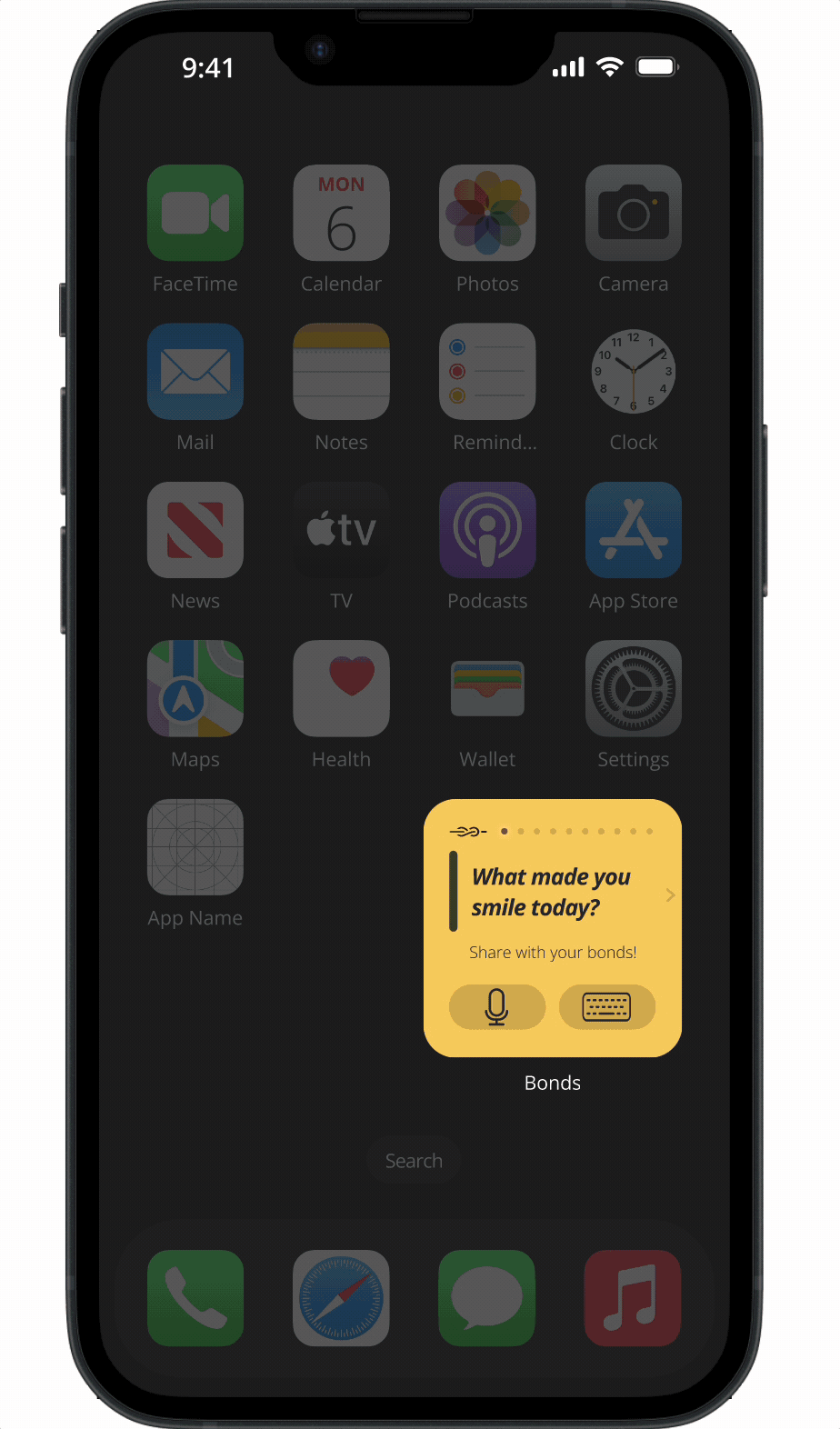
Bonds promotes your real relationships through the power of timely reminders and prompts
My Role
Product lead: Visual design, Interaction design, User flows, UX research, User validation
My Team
-
Timeline and status
2 months Presented in December 2023 (not launched)
Overview
Video calls have become a lifeline for long-distance connections. But despite their convenience, they can’t fully replace face-to-face interactions. The challenge lies in bridging the gap between technology and human connection, ensuring loved ones never feel forgotten.
Can technology help us stay closer, even when miles apart?
Bonds is an Apple widget that can be enabled via individual’s contacts. Bonds is imagined to be integrated into the Apple IOS system to help set up easy prompts (at one’s selected frequency) that can be shared with contacts with whom bonds has been activated. It syncs calendars and suggests in screen suggestions of down time for you both to connect. It keeps track of all milestones and ensures you and your loved ones don’t have to miss a beat.
Bonds is your one stop shop for maintaining relationships!
Highlights

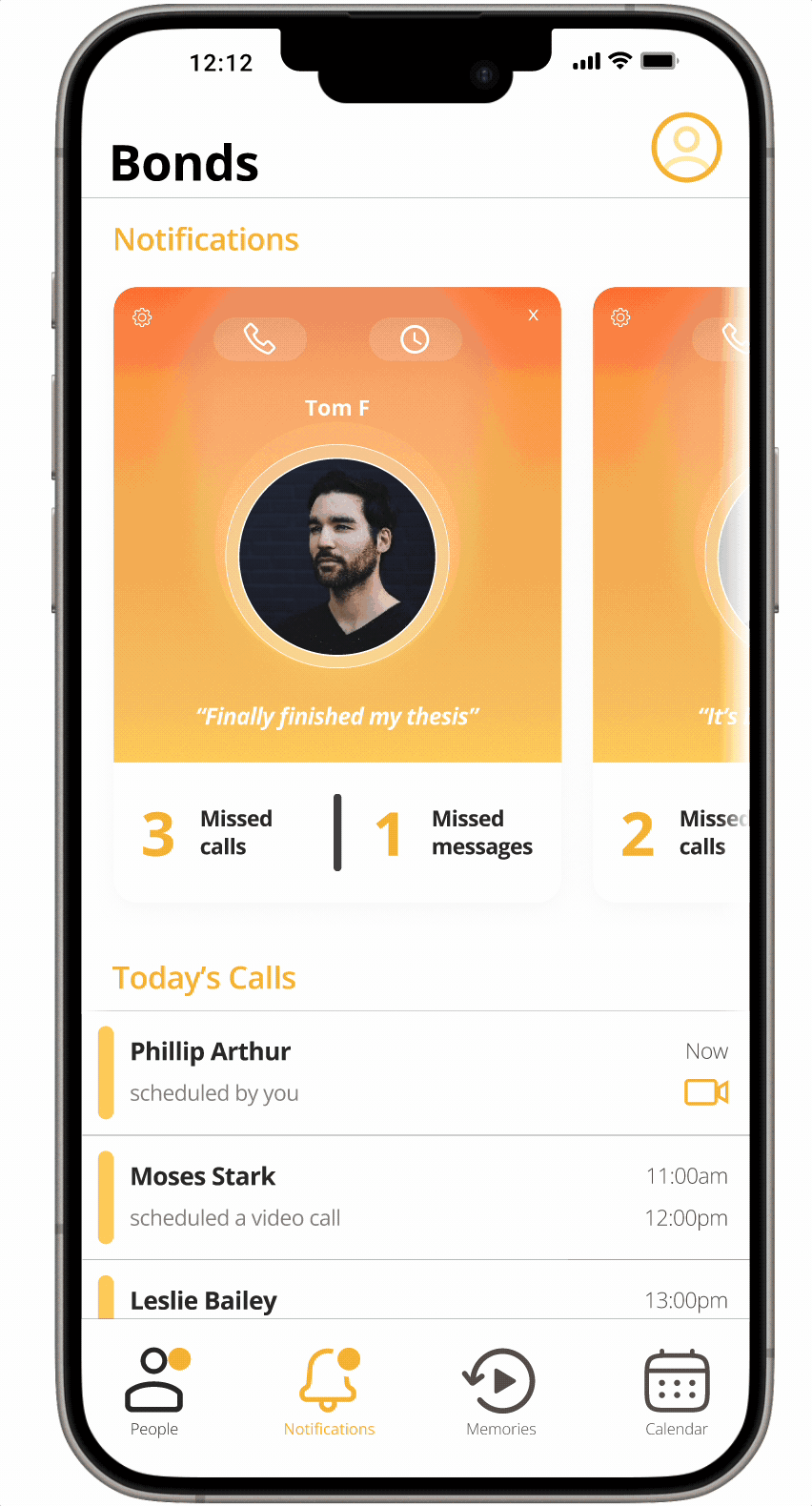
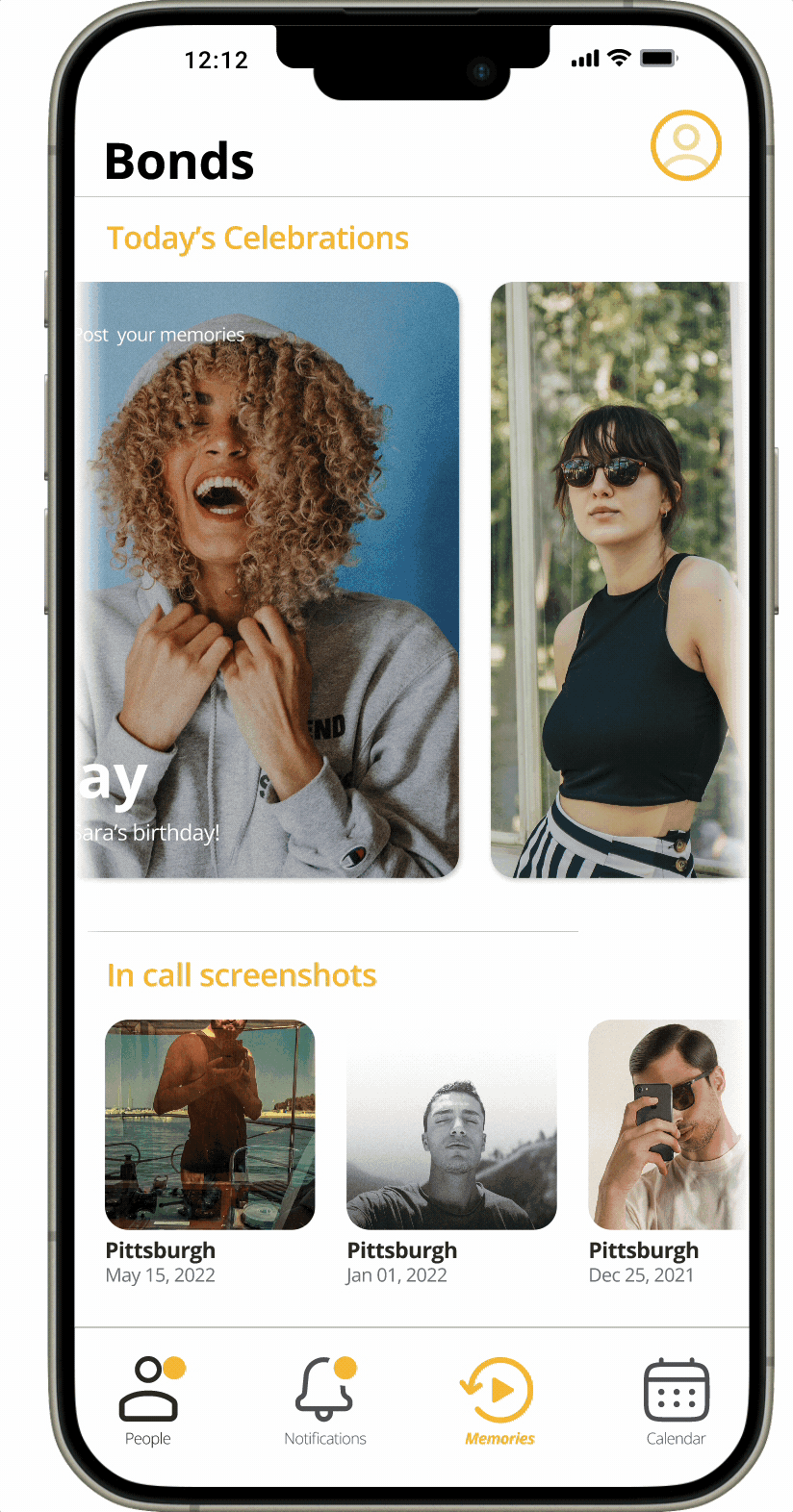
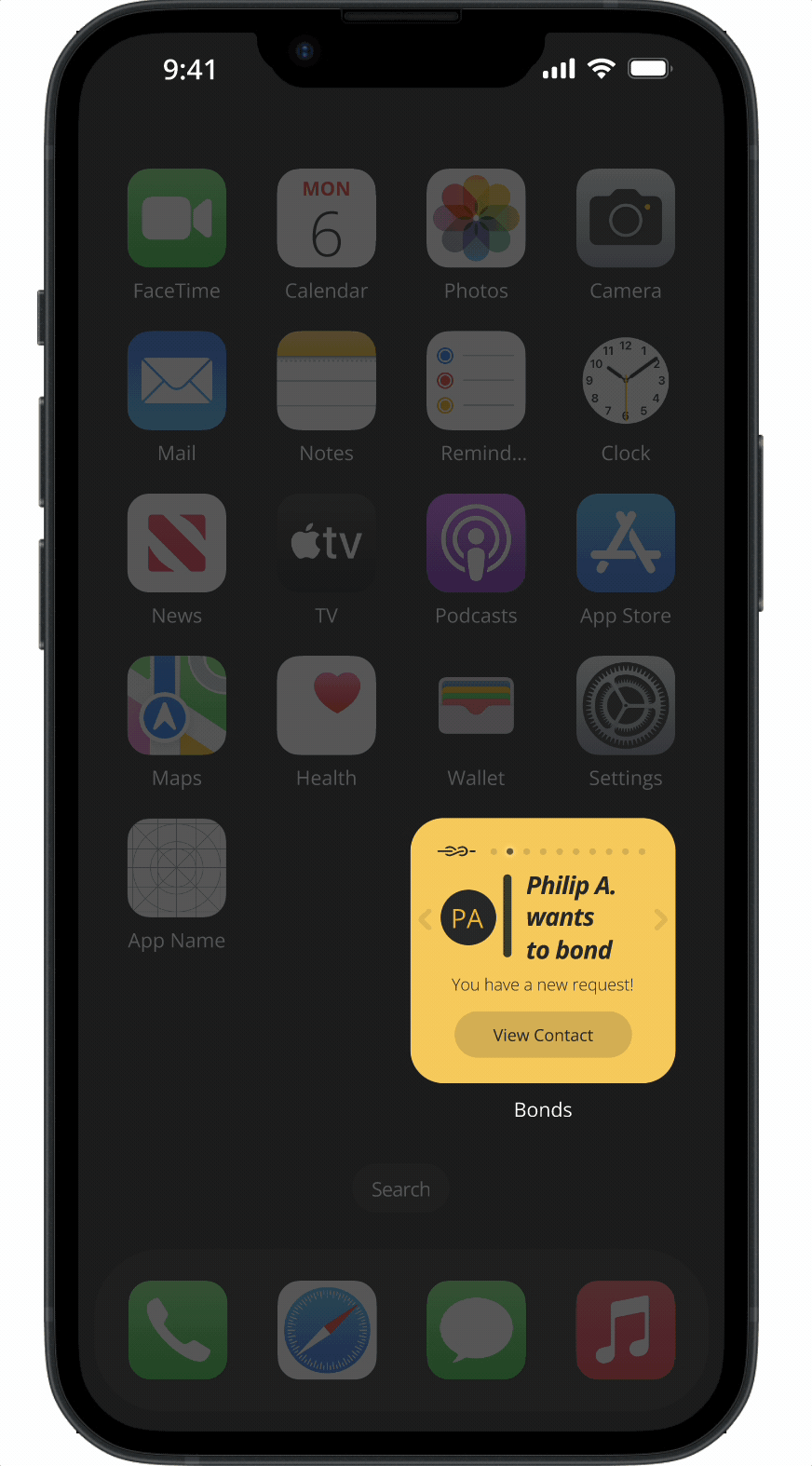
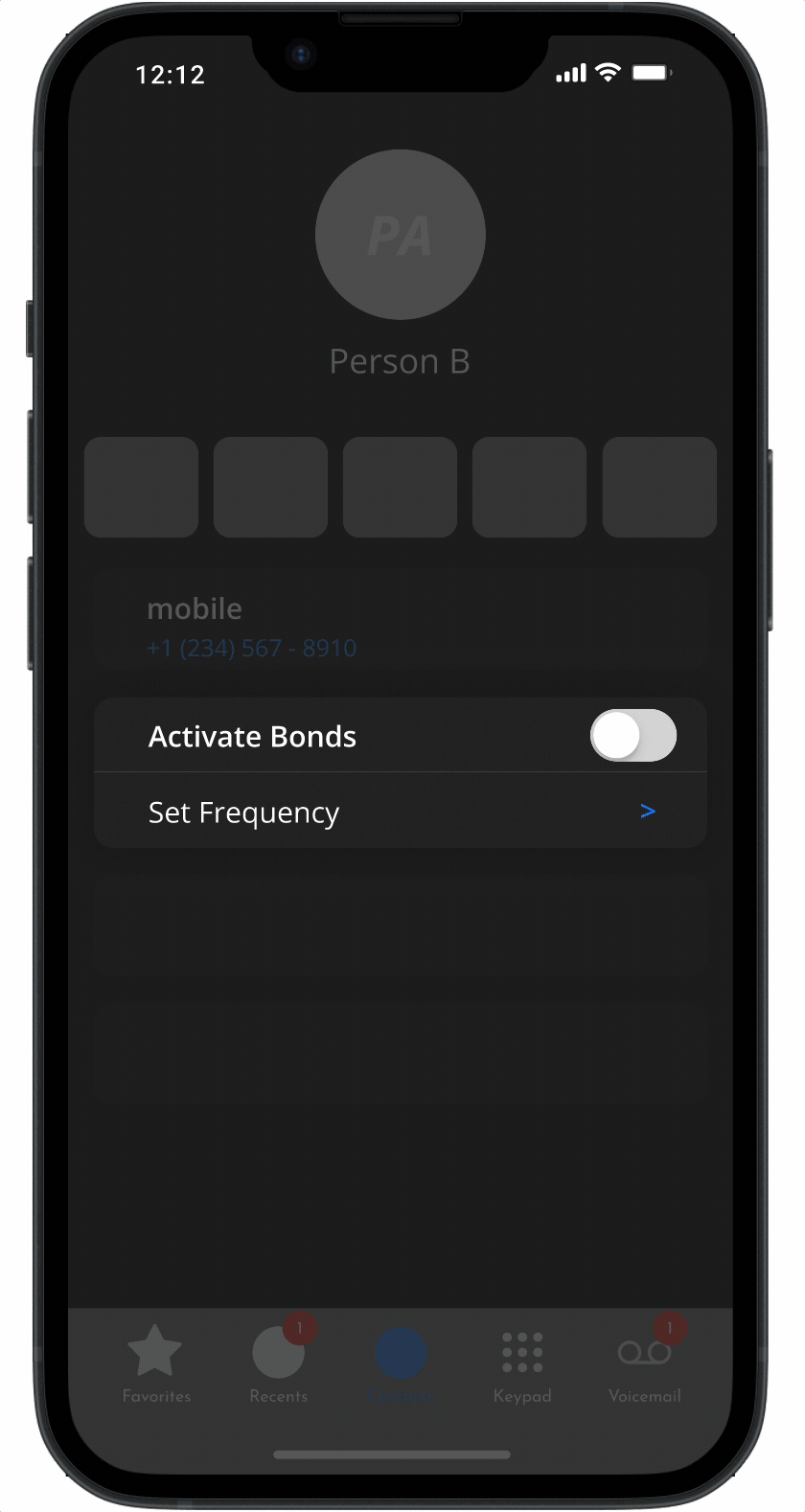
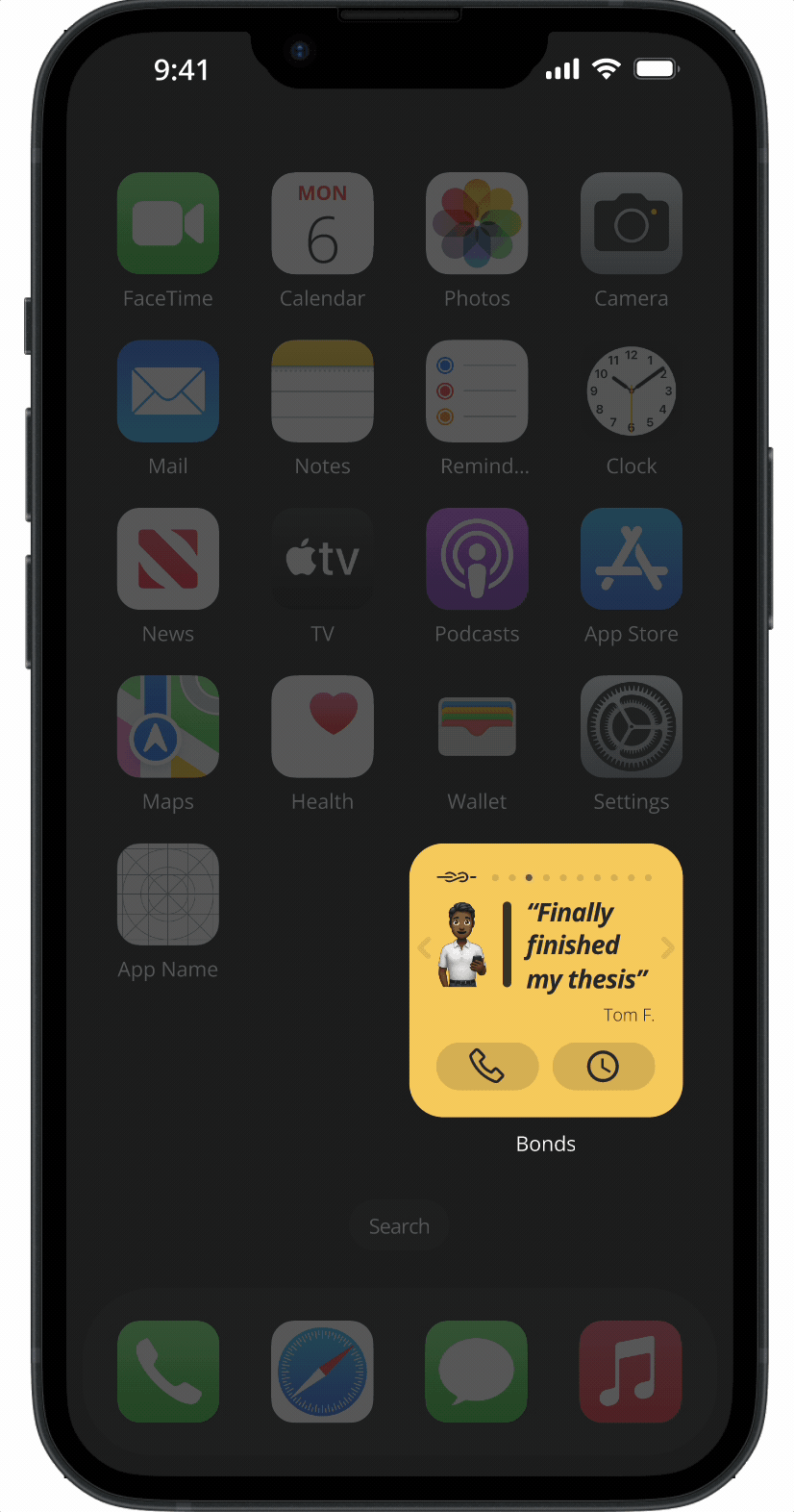
Problem
Not being lonely is hard
It's unusually difficult to stay up to date with loved ones due to busyness
Busy schedules, time zones, and life's demands often create barriers to staying connected. Current solutions aim to curate new avenues to communicate virtually but fail to help maintain the cadence of healthy communication. Most users surveyed, admitted that it required multiple scheduling attempts to actually finally talk with someone.
Not only that, sometimes, messages get trapped in overwhelming notifications due to the multiple ways through which individuals stay connected. Also, if we must admit, life gets busy and people forget to check in altogether
“I'm not good at keeping in contact so my parents always schedule”
Liz
“If I'm feeling like I miss a friend or something, I text them and ask do you wanna call on Friday, Saturday?”
Nat
“If something good happens, I want to share with those close to me as soon as possible”
Rishi
“Oh, I schedule video calls if I'm arguing with my friends.”
Mary
“We agree on a time slot and eventually have the phone call.”
Gigi
“I'm most concerned with maintaining the strong relationship bond”
Fifs
Text: Quotes from interviews with college students
We can't keep up for three main reasons
Based on surveys and interviews, I uncovered that 3 main reasons exist which exacerbate the tendency for people to remain unable to stay in touch:
Multiple interaction platforms
There are many apps on the market today which individuals use. The multiplicity of these platforms make it difficult to track notifications
Lack of notifications
There is no system currently which helps people to remember how long it's been since they caught up with their loved ones
Guilt
When individuals realize they have forgotten to keep up with a loved one, some address it by being avoidant and procrastinating
The Challenge
Help people maintain emotional bonds
Foster emotional connections with loved ones using digital nudges that do not disrupt normal phone usage patterns
Basic design principles
Clarity
Simple, uncomplicated user flows
Informal
“An app seems too formal for maintaining connections.”
Indicative
One's attention should be drawn to the possible decline of a bond or connection
Ideation
How the current experience can be changed
Juxtaposing the current experience with users' preferred process
Research suggests that people want to be actively involved in their loved ones' lives. Technology can help by providing reminders to stay connected, share updates, and schedule video calls. This proactive approach aims to maintain strong emotional bonds, even when people are far apart. The tool could help users establish a communication rhythm, reducing feelings of neglect, worry, and anxiety that can arise from infrequent contact. Figure 1 shows the current experience, while Figure 2 illustrates a potential solution.
Fig 1.

Image: Current experience map of keeping in touch
Fig 2.
.png)
Image: Possible future experience map of keeping in touch
It's best to look at things full picture before delving in
Research shows that people value both active and passive methods of staying in touch with loved ones. Active contact involves initiating contact, while passive contact relies on reminders. While most products focus on active contact, Bonds needed to support both approaches to ensure a comprehensive solution.
Active participation
Passive participation
But every good thing starts with a sketch
Research revealed that young adults primarily use video call software to stay connected with important people. To facilitate frequent contact between in-person meetings, I explored proactive methods to keep loved ones connected. User feedback indicated that Bonds should have a prominent home screen presence and a simple interface to encourage regular use and track connection statuses.

Image: Storyboard sketch
...And requires engaging with users to understand possible usage patterns
To determine the optimal button size and user preferences, I created a paper prototype that closely resembled a phone. Through user testing, I gathered feedback on interactions and the use of color as an indicator. The results suggested that Bonds should employ a delightful, non-alarming design and use language that inspires communication rather than feeling like a chore.
Image: Slidable paper prototype
.png)

User flows
Technology can make keeping in touch breezy
Firstly it was vital that Bonds needed to be integrated into the phone's ecosystem
For this project, we chose the iPhone as our primary device. To encourage users to stay connected with loved ones passively, Bonds needed to be more than just an app. Users resisted downloading new apps, as this often led to missed notifications. Therefore, integrating Bonds into the device's core apps and providing a convenient homescreen widget was essential. This would enable users to interact with Bonds directly, without the need for additional steps.
Fig 1.
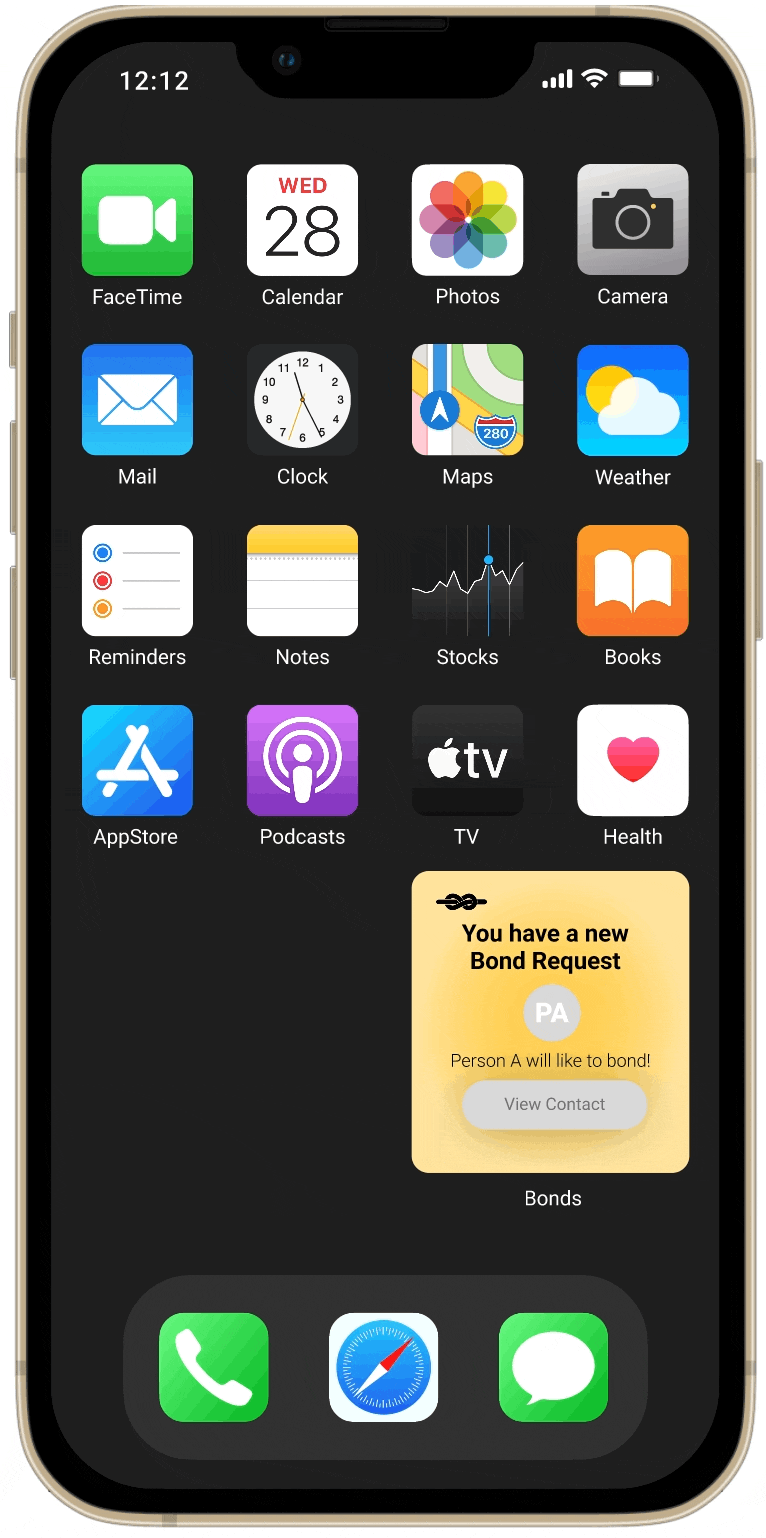
GIF: Low-fi prototype responding to a bond request
Fig 2.
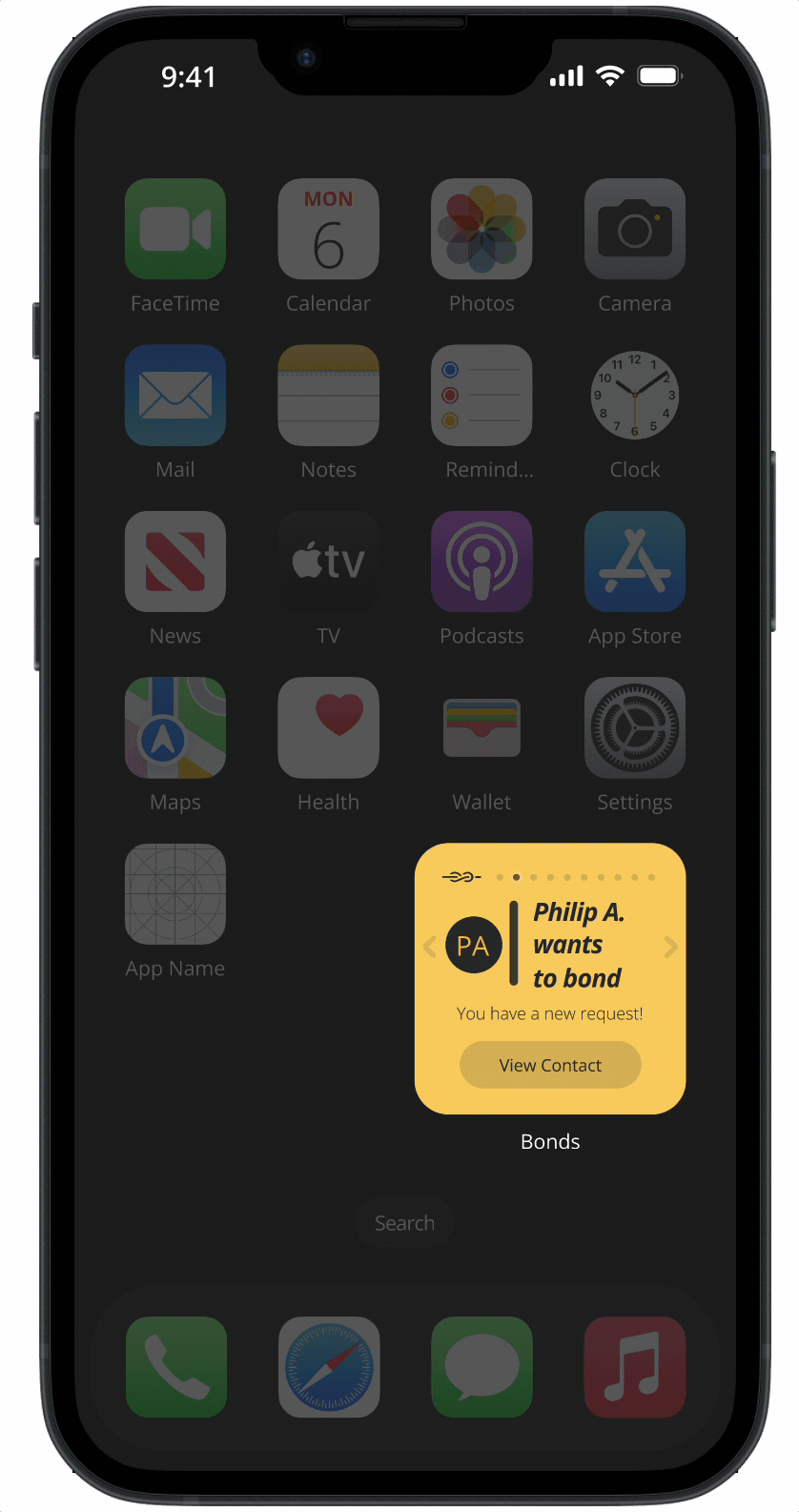
GIF: Mid-fi prototype responding to a bond request
Familiarity: Low
The visuals of the low-fi prototype were not in line with native apple flows which users mentioned made it a less crisp experience
Familiarity: High
The mid-fidelity prototype allowed users to activate Bonds more quickly and found the widget's language to be intuitive.
Once activated, Bonds supports your specified frequency
After activation, Bonds tracks communications across linked messaging platforms. Weekly prompts encourage users to share updates (text or audio) with their Bonds. The Bonds widget alerts users when they haven't reached out to a specific Bond within their preferred frequency. Users can then review missed calls and messages from all platforms in a consolidated list.
Fig 1.
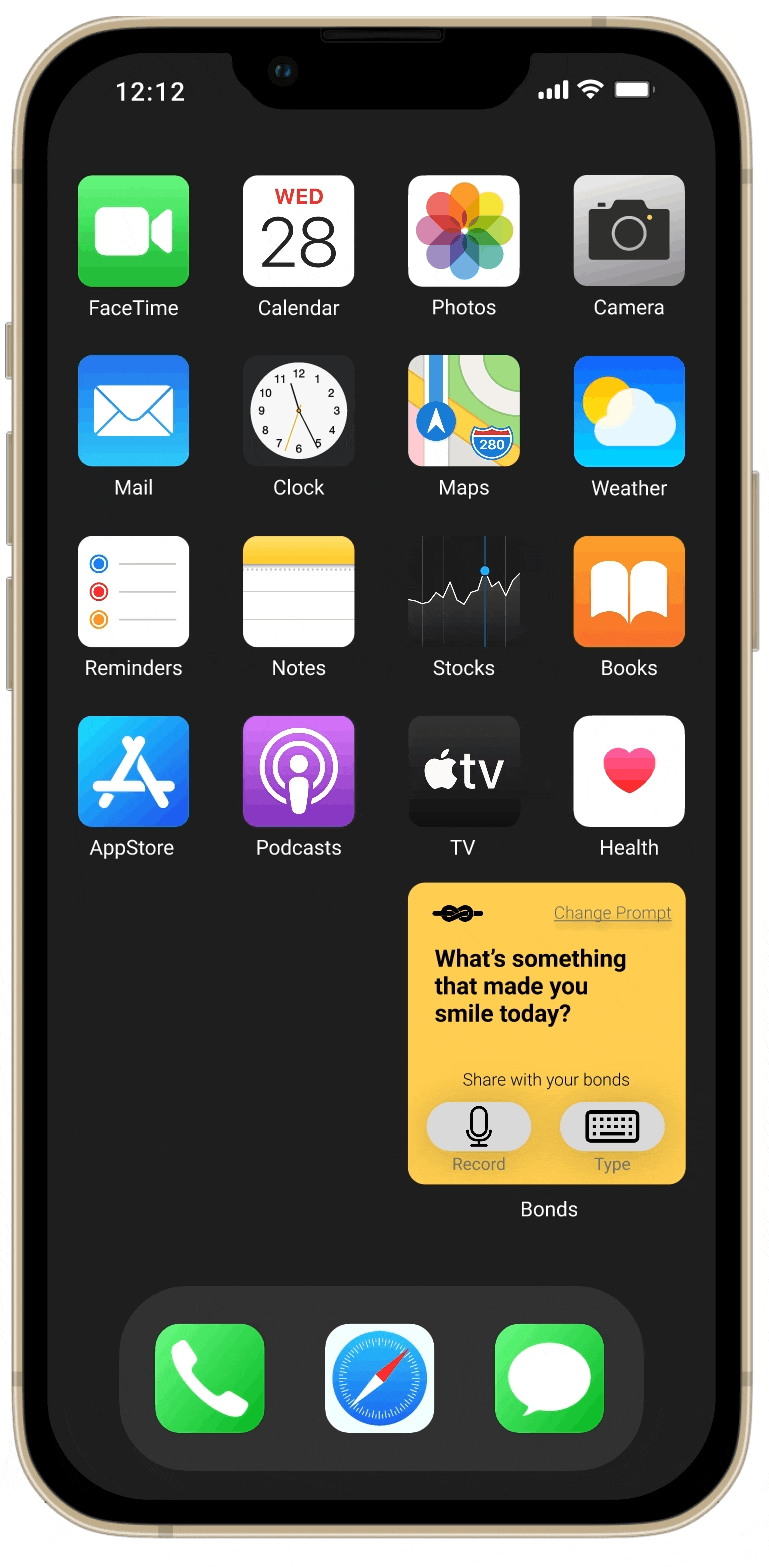
GIF: Low-fi prototype prompt notification
Fig 2.

GIF: Mid-fi prototype prompt notification
Layered information: Complex
Users felt overwhelmed by the amount of text on the small screen and found the experience monotonous and rushed.
Layered information: Simple
Users found the limited text on the screen more engaging and appreciated the secondary experience as an added bonus.
...and lets you know when too much time has lapsed without contact
Similar to Duolingo's streak-tracking widget, Bonds' widget uses color to indicate when a user hasn't communicated with a Bond within their preferred frequency. The widget's color becomes increasingly red as more time passes.
Fig 1.
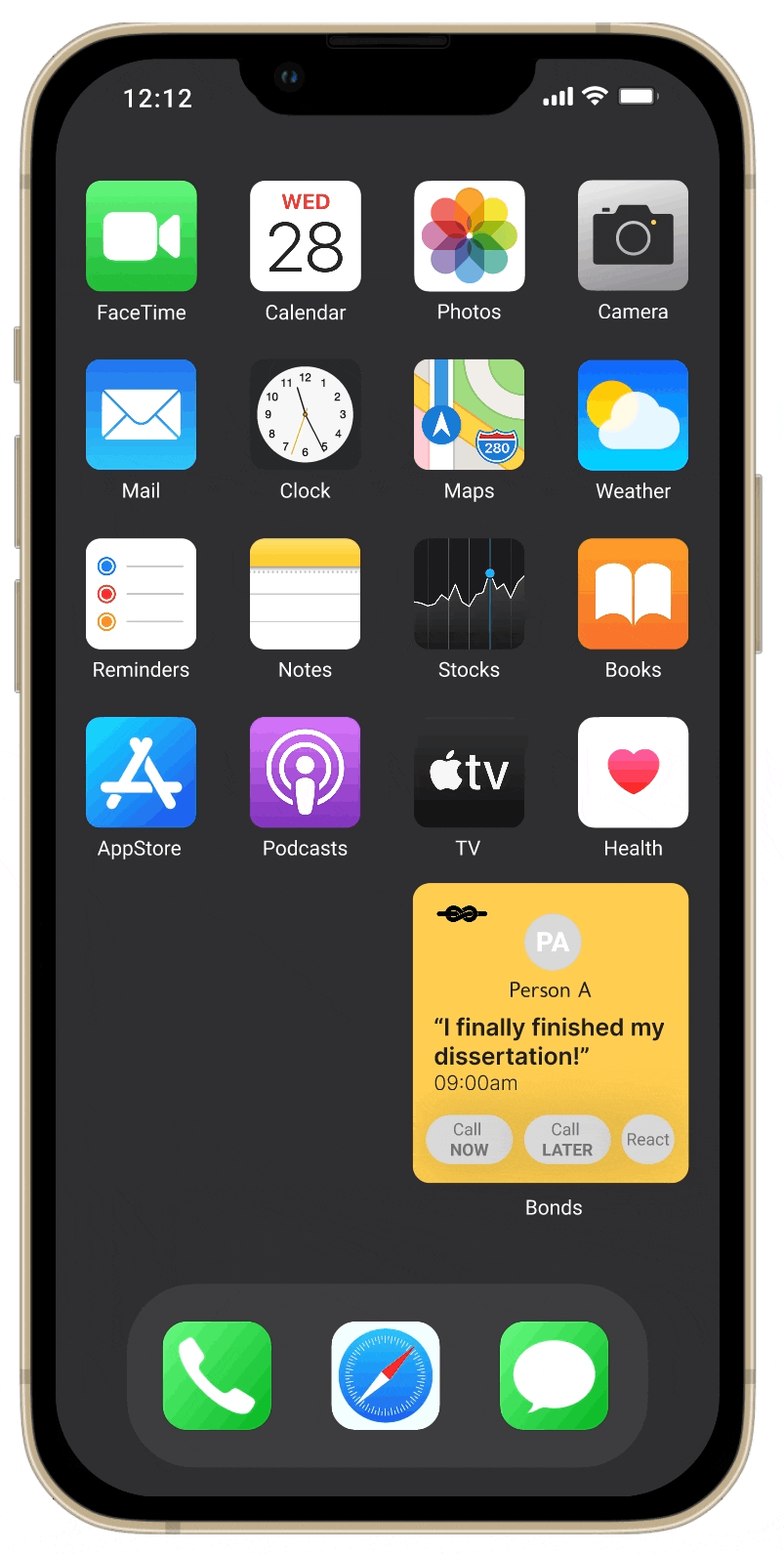
GIF: Low-fi prototype of a weakening bond
Fig 2.
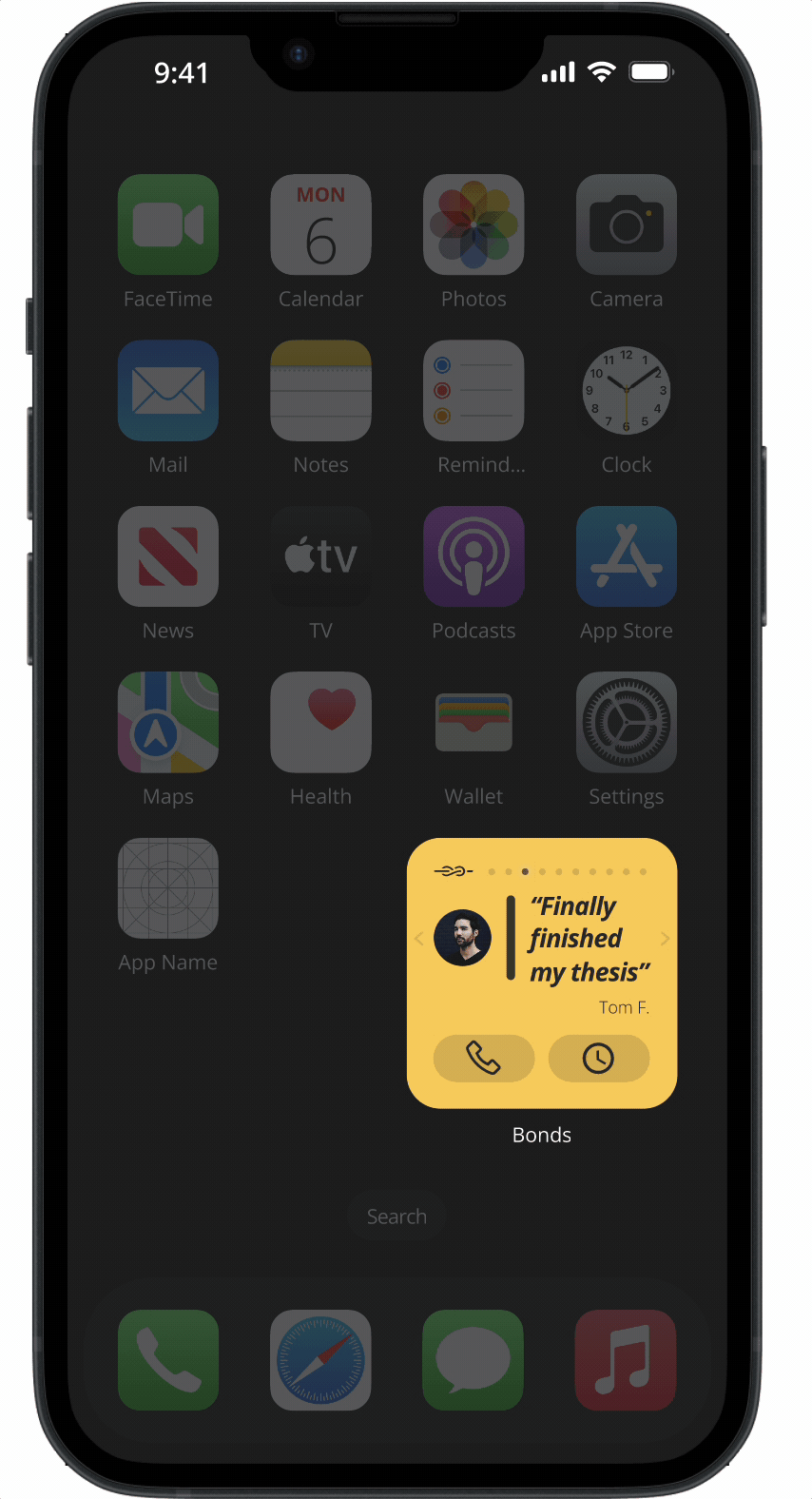
GIF: Mid-fi prototype of a weakening bond
Ease of understanding: Complex
The lack of text hierarchy made it difficult for users to understand screen changes, and the text style buttons hindered quick action recognition.
Ease of understanding: Simple
Icon buttons made users reactions faster. The hierarchy of the text made it clear to the users the most important things to focus in on the screen
Bonds keeps you on your toes around special events or celebrations!
In passive fashion, Bonds enables users keep track of special events right from their homescreen!
Fig 1.
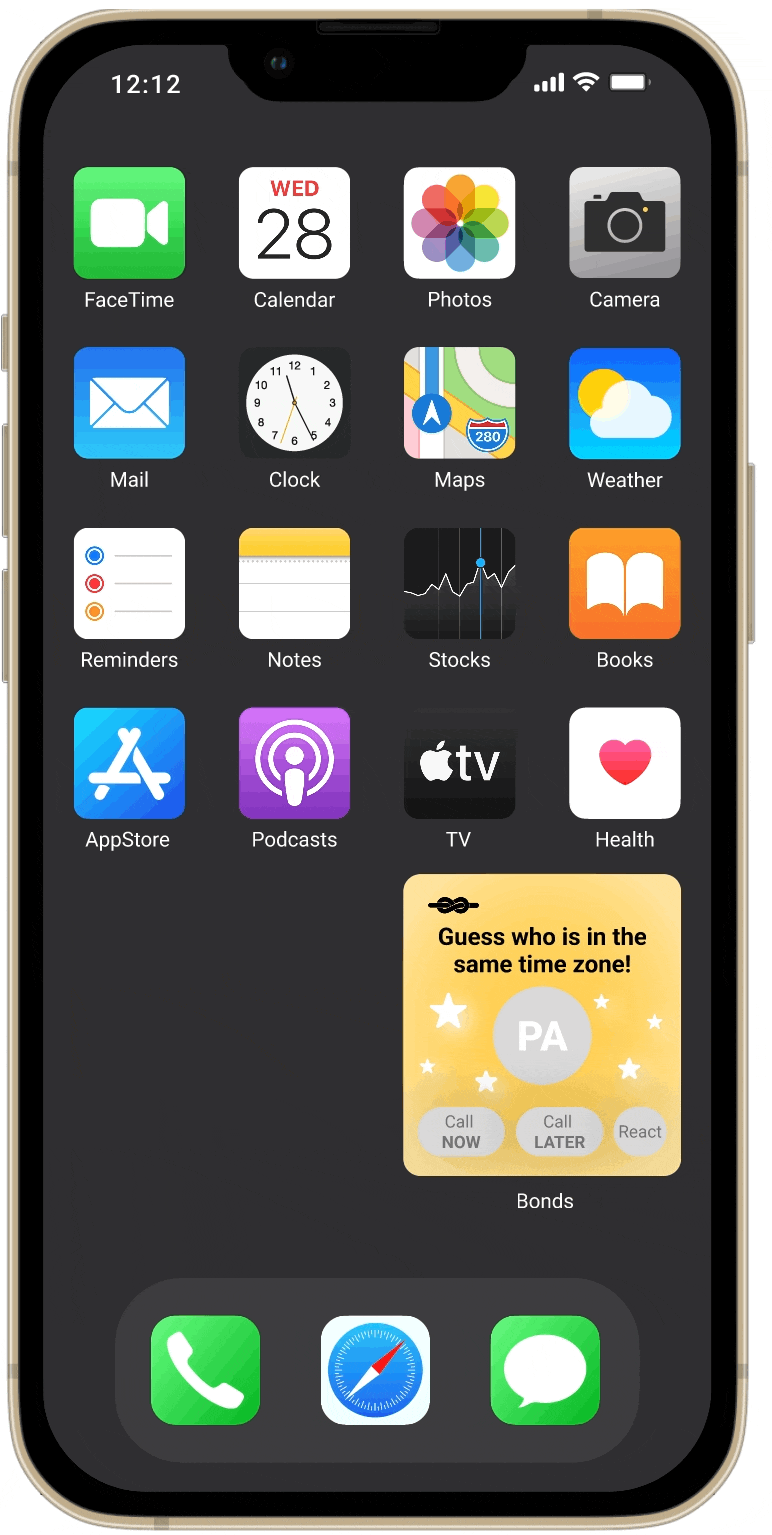
GIF: Low-fi prototype of a milestone or event
Fig 2.

GIF: Mid-fi prototype of a milestone or event
But Bonds promotes active participation also
For users who prefer to view all communications at once, an app version of Bonds is available. The app allows users to view all their Bonds (Figure 1), see all notifications (Figure 2), and create pre-generated social media posts to celebrate their connections (Figure 3).
Fig 1.

GIF: Viewing Bonds
Fig 2.

GIF: Viewing notifications
Fig 3.
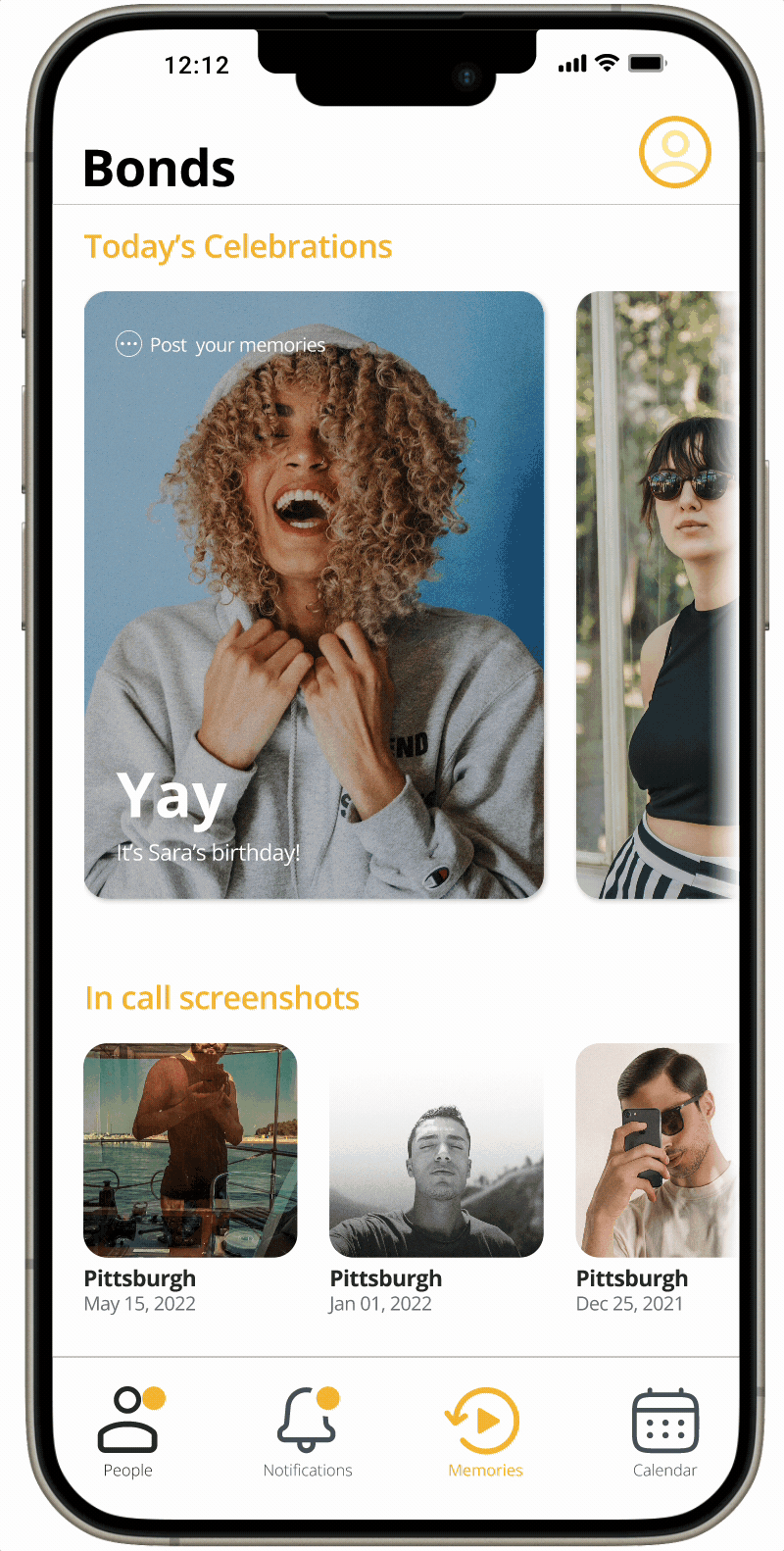
GIF: Viewing milestones
Future development
...But there's still a lot in store
At the end of the day, loved ones should be reminded of shared moments
Much like Spotify and Instagram, it is important for users to catch up on a round up of memories at the end of the year, so a low-fi mockup was created to explore what that experience could look like
Fig 3.
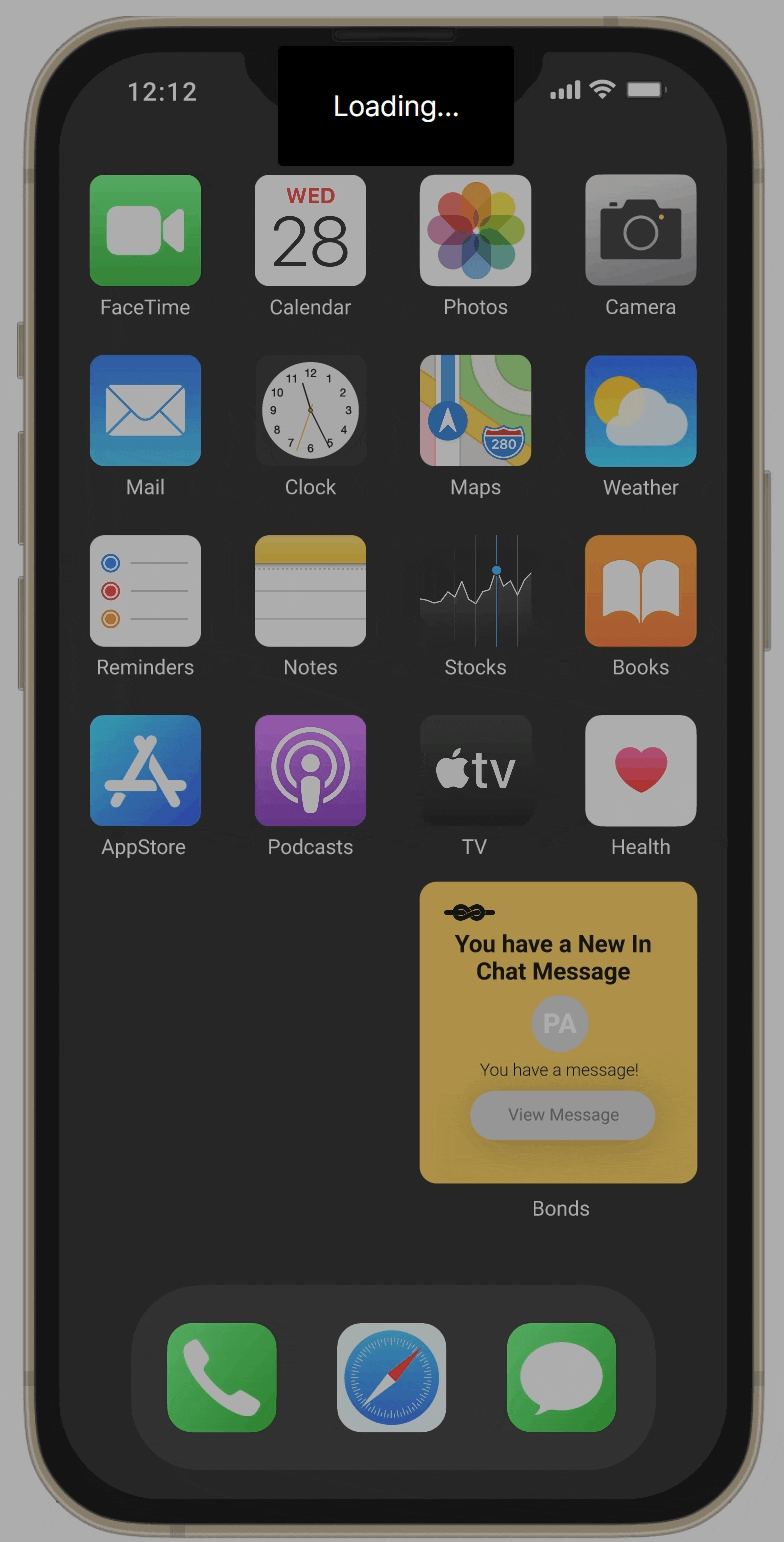
GIF: Low-fi prototype of Bonds year-end memory roundup
Retrospective
What I would do differently
Measure engagement metrics more closely during testing periods
When testing prototypes, I should have measured baseline engagement metrics to validate design choices and provide a reference for future development. Moving forward, it's important to track key performance indicators (KPIs) for a social tool like this.